Columns
Nigerian Customs Deputy Comptroller Alajogun Flouts Retirement Rules, Still In Office Months After February Terminal Leave Deadline —Sources
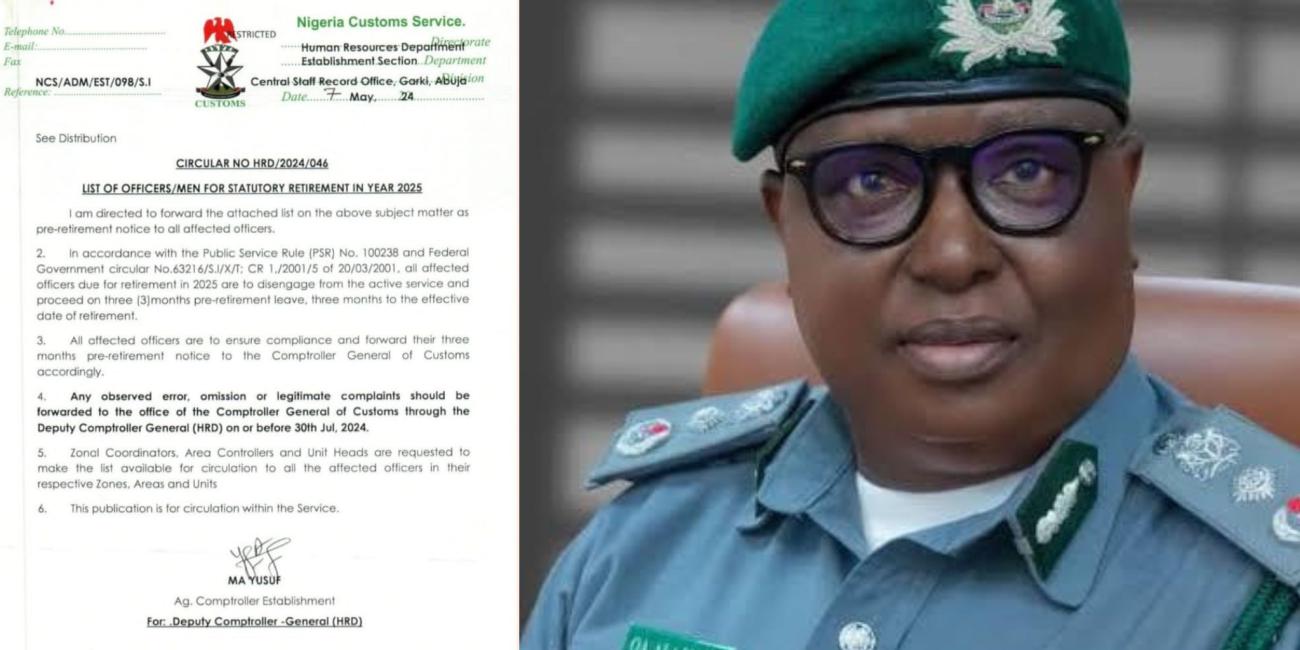
A senior official, Deputy Comptroller General Olaniyi Adisa Alajogun, has been accused of breaching service codes by remaining in office beyond the statutory retirement age of 60.
An investigation has revealed a disregard for the law within the Nigerian Customs Service (NCS).
A senior official, Deputy Comptroller General Olaniyi Adisa Alajogun, has been accused of breaching service codes by remaining in office beyond the statutory retirement age of 60.
Sources within the Customs Service told SaharaReporters that Alajogun, who turned 60 on May 23, 2025, was due to retire fully on that same day.
A copy of the Customs statutory retirement list for 2025, exclusively obtained by SaharaReporters, confirms that Alajogun (Service number 39279) was born on May 23, 1965, and began his service on August 31, 1990.
The document indicates that he was supposed to retire on May 23, 2025, citing age as the retirement condition. It also states that he should have gone on pre-retirement leave as of February 23, 2025.
However, sources allege that Alajogun has continued to act as if he were still an active member of the service, overseeing enforcement, inspection, and investigation activities despite having reached the mandatory retirement age.
“He was due for pre-retirement leave on February 23
, 2025, and full retirement on May 23, 2025,” one of the sources said.
“But Alajogun is still signing documents, and still carrying out his duties among others which should not happen.
“This is a total disregard for the laws guiding the Customs Service. His continued stay in office is setting a bad precedent, especially in the customs service,” said a dissatisfied staff member.
A Nigeria Customs Service circular dated May 7, 2025, with reference number HRD/2024/046, listed the names of officers who were either due for retirement or set to retire soon.
The document, signed by M.A. Yusuf, Acting Comptroller of Establishment, on behalf of the Deputy Comptroller-General (HRD), read: “I am directed to forward the attached list on the above subject matter as pre-retirement notice to all affected officers.
“In accordance with the Public Service Rule (PSR) No. 100238 and Federal Government circular No.63216/S.I/X/T; CR1/2001/5 of 20/03/2001, all affected officers due for retirement in 2025 are to disengage from the active service and proceed on three (3) months pre-retirement leave, three months to the effective date of retirement.
“All affected officers are to ensure compliance and forward their three months pre-retirement notice to the Comptroller General of Customs accordingly.
“Any observed error, omission or legitimate complaints should be forwarded to the office of the Comptroller General of Customs through the Deputy Comptroller General (HRD) on or before 30th Jul, 2024.
“Zonal Coordinators, Area Controllers and Unit Heads are requested to make the list available for circulation to all the affected officers in their respective Zones, Areas and Units.”
“This publication is for circulation within the Service,” it added.
The situation has raised concerns among staff about the integrity of the institution and created fertile ground for corruption, particularly in light of the controversial tenure of Comptroller-General of Customs, Adewale Adeniyi, who himself is reportedly due for retirement but has remained in office.
In February, the House of Representatives Committee on Public Petitions summoned Adeniyi to explain why some senior officers of the Service had refused to retire upon reaching the mandatory retirement age.
This development followed the review of a petition submitted by the Obasi-Pherson Help Foundation, which alleged that certain Assistant Comptrollers and Comptrollers were due for retirement but had blatantly refused to leave the service.
A statement issued by the Head of Media, House Committee on Public Petitions, Chooks Oko, named the affected officers as Imam, Umar, and Egwu, all Assistant Comptrollers, and Awe, Fatia, and Faith, all Comptrollers.
Issuing the summons, the Committee emphasized that the Comptroller-General, as a public officer, had a responsibility to clarify the situation to the Nigerian public.
“In this era, when most of our youths are seeking employment, it is unfair for those due for retirement to refuse to leave,” the Chairman of the Committee on Public Petitions, Mike Etaba, was quoted as saying.
Contrary to the Public Service Rules (PSR), FIJ exclusively reported in December 2024 that President Bola Tinubu and the Nigerian Customs Service (NCS) under Adewale Adeniyi had extended the service years of 12 senior officers who were already due for retirement.
Among the beneficiaries of this extension were Michael Awe, the Comptroller of the Murtala Muhammed Cargo Command; Baba Imam, an Assistant Comptroller of Customs and Secretary to the NCS Board; Kayode Kolade, the Comptroller of the Seme Area Command; and Umar Isah Gusau, an Assistant Comptroller of Customs. These officers were supposed to have commenced their compulsory three-month pre-retirement leave, as stipulated by the PSR.
In June 2024, documents obtained by SaharaReporters revealed that Adewale Adeniyi had claimed two different dates of birth in various official documents at different times.
The documents showed that Adeniyi had used these different birth dates at various stages of his career to manipulate the system to his advantage.
For instance, when he was employed by the Nigerian Railway Corporation (NRC) in 1981, the customs boss listed January 19, 1964, as his date of birth on his curriculum vitae. He also used the same birth date when he applied for employment with the Nigerian Customs Service in 1990.
The documents revealed the customs boss turned 60 on January 19, 2024, by which time he should have retired based on public service rules.
Adeniyi now claims that he was born on January 13, 1966, in his curriculum vitae.
“He is still in service because he falsified his date of birth by changing it from January 19, 1964 to January 13, 1966,” a source told SaharaReporters at the time.
“If going by his real age, he should have retired from the federal service in January but he used his position and connections to falsify, alter and manipulate his records to attain this position.”
As if that was not enough, the documents also revealed that Adeniyi altered his years of service to remain in customs service.
He graduated from secondary school in 1979 when he took the West African School Certificate Examination and was employed into the service of the Nigerian Railway Corporation (NRC) in 1981 as a Public Relations Assistant.
Adeniyi worked as a public servant at the NRC from November 1981 to 1990 from where he was employed in the service of the NCS.
The documents showed he included his nine years of public service experience in his documentation form with the customs.
Adeniyi while documenting for the customs job in 1990 in ‘Details Of Employment Since Leaving School,’ wrote, “Nigerian Railway Corporation November 1981 to Date.”
His customs staff information form is numbered 39554. He was appointed into the customs service on 2-11-1990 as ASC (Assistant Superintendent of Customs).
Other information provided by Adeniyi showed he attended the University of Ife from October 1983 to June 1987, where he obtained a BSc in International Relations and the Nigerian Institute of Journalism from July 1989 to September 1989, and also from May 1990 to May 1990.
He also disclosed that he earned a certificate in Basic, Advanced Public Relations in 1989, adding that he learnt to speak French at Alliance Francaise in Ibadan, Oyo State.
He said he attended Modakeke High School from September 1974 to June 1979 and Ejigbo Baptist High School from September 1980 to June 1981.
Meanwhile, the Customs boss has denied the allegations.
In a statement issued last year, Adeniyi denied the reports that he had falsified his age, describing them as untrue.
He said the report might be aimed at distracting him but he would remain focused and committed to leading NCS well.
Sources within the Customs Service say that officers are increasingly frustrated, fueling discontent that could potentially escalate to strike action. Many feel the promotion system has become skewed, with allegations that Adewale is running the NCS as a personal enterprise or “household affair.”
This perception is reinforced by the widespread belief that only those who align with his interests are favored for promotion, fostering a culture of nepotism and disillusionment among the ranks.
When SaharaReporters reached out to the spokesman for the NCS, Abdullahi Maiwada, for reaction, he simply said in a text message, “I am not aware of this development.”
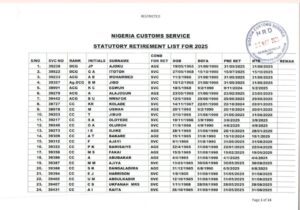
Columns
Important Facts About Adegoke Adelabu – “The Lion of the West” (1915–1958)
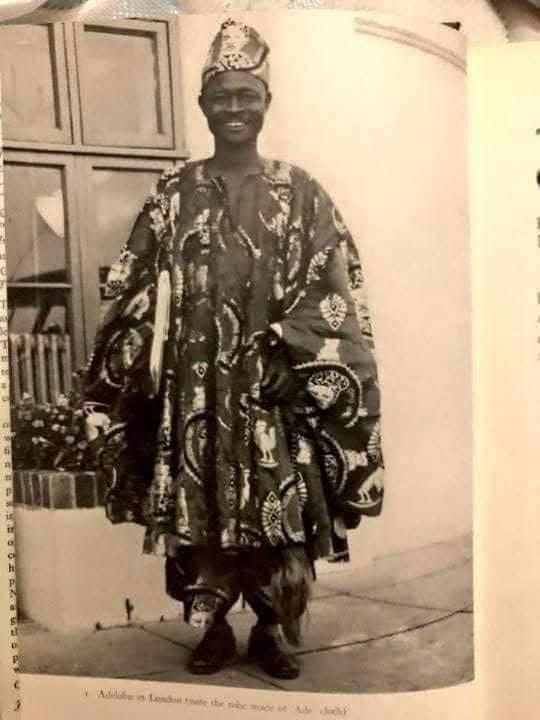
Full Name: Alhaji Adegoke Gbadamosi Adelabu
Birth Name: Gbadamosi Adegoke Akande
Date of Birth: 3 September 1915
Place of Birth: Ibadan, present-day Oyo State, Nigeria
Nickname: “The Lion of the West” — a title earned for his fearless, combative, and charismatic political style
Education:
St. David’s School, Kudeti, Ibadan (1925–1929)
Government College, Ibadan (from 1936)
Yaba Higher College (admitted on scholarship)
Intellectual Reputation:
Adelabu was renowned for his exceptional oratory, sharp intellect, and ideological boldness, making him one of the most formidable politicians of his generation.
Popular Alias:
Known among his largely non-literate supporters as “Penkelesi” — a Yorubanised version of “peculiar mess”, a phrase he frequently used in speeches, which became inseparably associated with him.
Political Affiliation:
A leading member of the National Council of Nigeria and the Cameroons (NCNC) under Dr. Nnamdi Azikiwe during the colonial era.
Political Rivalry:
He was a fierce and ideological opponent of Chief Obafemi Awolowo in the Western Region, making Western Nigerian politics highly competitive and polarized in the 1950s.
Colonial-Era Persecution:
Adelabu is widely regarded as one of the most persecuted opposition politicians of the colonial period, having faced about 18 court cases, many believed to be politically motivated.
Corporate Achievement:
He made history as the first African General Manager of the United Africa Company (UAC), a major British trading firm, marking a significant breakthrough for Africans in colonial corporate leadership.
Death:
Date: 25 March 1958
Place: Ode-Remo, Ijebu Province (present-day Ogun State)
Cause: Fatal motor accident involving his Volkswagen Beetle, alongside a Lebanese business associate and two relatives
Age at Death: 43 years old — two years before Nigeria’s independence
Family:
At the time of his death, Adelabu had 12 wives and 15 children, reflecting the social norms of his era.
Aftermath of Death:
His sudden and tragic death sparked widespread riots and unrest across Ibadan, underscoring his immense popularity and political influence among the masses.
Historical Significance:
Adelabu remains one of the most charismatic, controversial, and intellectually formidable politicians in Nigerian pre-independence history, often remembered as a symbol of radical opposition politics and mass mobilisation.
Source:
Nigerian political history archives
Ibadan colonial-era political records
Biographical accounts on Adegoke Adelabu
Yoruba political history documentation
Columns
Pentecostal Evangel Sparks a Great Revival in Nigeria, 1930s
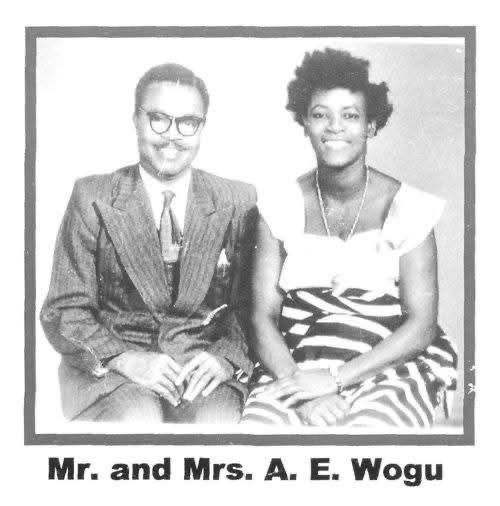
The pioneering role of Mr and Mrs A. E. Wogu in the rise of indigenous Pentecostalism
The explosive growth of Pentecostal Christianity in Nigeria during the twentieth century did not emerge overnight. Long before megachurches, crusade grounds, and global ministries, the movement was shaped by small prayer groups, radical faith, and indigenous leaders who believed that Christianity in Africa must be spiritually vibrant and culturally rooted. Among the most influential of these pioneers were Mr and Mrs Augustus Ehurie Wogu, whose quiet but profound work in Eastern Nigeria helped spark what later became one of the most significant religious revivals in Nigerian history.
By the 1930s, Nigeria was already experiencing religious ferment. Dissatisfaction with mission churches, hunger for spiritual power, and the search for an African-led Christian expression created fertile ground for Pentecostal ideas. It was within this context that the Wogus emerged as key catalysts of renewal.
Augustus Ehurie Wogu: Faith and Public Life
Augustus Ehurie Wogu (A. E. Wogu) was not a cleric by training. He was a respected civil servant, educated and deeply rooted in Christian discipline. Like many early revivalists, his spiritual influence came not from formal ordination but from conviction, prayer, and leadership within lay Christian circles.
At a time when colonial society often separated public service from spiritual enthusiasm, Wogu embodied both. His faith was intense, practical, and unapologetically Spirit-filled. He believed that Christianity should be marked by holiness, prayer, divine healing, and the active presence of the Holy Spirit—beliefs that resonated deeply with many Nigerians who felt constrained by the formality of mission Christianity.
The Pentecostal Spark: Print, Prayer, and Providence
One of the most remarkable aspects of the Nigerian Pentecostal revival was how it was ignited. Rather than beginning with foreign missionaries, the movement was sparked through printed Pentecostal literature.
In the early 1930s, Wogu and other like-minded believers encountered Pentecostal Evangel, a magazine published by the Assemblies of God in the United States. The publication circulated testimonies of revival, Spirit baptism, divine healing, and missionary zeal. For Wogu and his associates, this literature provided language and theological grounding for experiences they were already seeking.
Inspired, they began intense prayer meetings, fasting, and Bible study sessions in their homes. These gatherings soon attracted others hungry for deeper spiritual life.
The Wogu Home as a Revival Centre
The home of Mr and Mrs Wogu in Umuahia, present-day Abia State, became one of the earliest hubs of Spirit-filled Christianity in Eastern Nigeria. It functioned as:
A prayer house
A teaching centre
A refuge for believers seeking healing and renewal
These meetings were marked by fervent prayer, testimonies, and an emphasis on personal holiness. Importantly, leadership was indigenous. Nigerians taught, prayed, interpreted scripture, and organised fellowships without missionary supervision.
This approach helped dismantle the idea that spiritual authority had to come from Europe or America.
Mrs Wogu and the Role of Women in Early Pentecostalism
While historical narratives often foreground male leaders, Mrs Wogu played a crucial role in sustaining and expanding the revival. She provided spiritual support, hospitality, organisational stability, and mentorship—functions that were essential to the survival of early Pentecostal fellowships.
Her partnership with her husband reflected a pattern later seen across Nigerian Pentecostalism, where women played powerful but often understated roles as prayer leaders, organisers, and spiritual anchors.
From Fellowship to Movement: Birth of Assemblies of God Nigeria
As the revival grew, correspondence began between Nigerian believers and the Assemblies of God in the United States. This relationship eventually led to the arrival of American missionaries in the late 1930s.
Crucially, because the movement already existed before foreign involvement, the resulting church developed with a strong indigenous identity. This distinguished Assemblies of God in Nigeria from many earlier mission-founded churches.
The values emphasised by Wogu and his peers—local leadership, spiritual experience, and African agency—became foundational to the denomination’s growth.
Impact on Nigerian Christianity
The legacy of Mr and Mrs A. E. Wogu extends far beyond Umuahia or the Assemblies of God denomination. Their work helped shape:
The broader Pentecostal and Charismatic movement in Nigeria
The idea that revival could emerge from African initiative
The theology of prayer, healing, and Spirit baptism that dominates Nigerian Christianity today
Many of Nigeria’s most influential pastors and evangelists trace their spiritual heritage, directly or indirectly, to the revival culture of the 1930s.
A Lasting Legacy
A photograph dated 29 March 1959, showing Mr and Mrs A. E. Wogu, captures not just a couple but a generation of believers whose faith reshaped Nigeria’s religious landscape. By that time, the movement they helped ignite had grown beyond imagination.
Their story reminds us that history is often made not only by those on pulpits or platforms, but by faithful individuals who open their homes, pray persistently, and dare to believe that renewal is possible.
Sources
This Week in AG History
Assemblies of God Nigeria historical archives
Ogbu Kalu, African Pentecostalism: An Introduction
J. D. Y. Peel, Religious Encounter and the Making of the Yoruba (contextual reference)
Nigerian church
Columns
Theophilus danjuma
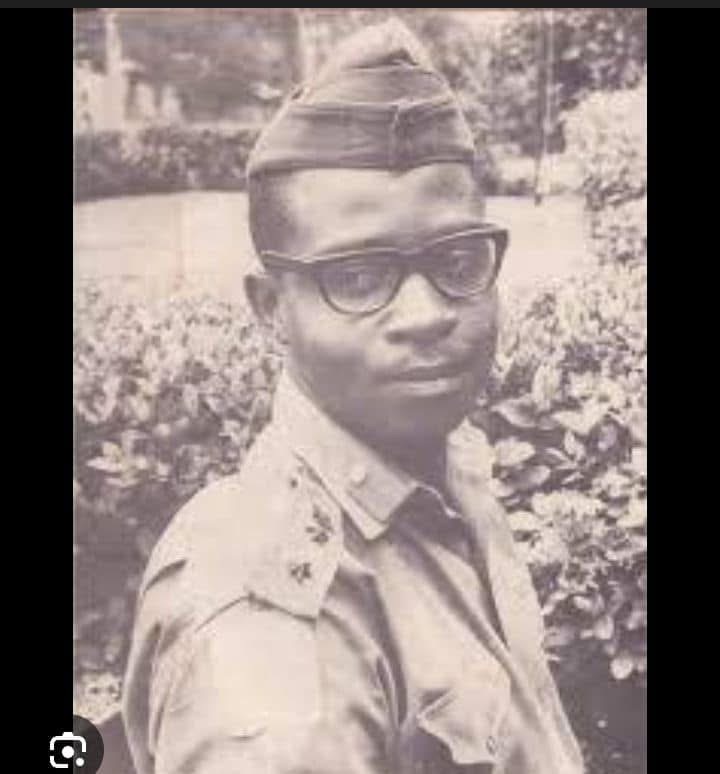
Lieutenant General Theophilus Yakubu Danjuma GCON ) is a retired Nigerian @rmy officer, billionaire businessman, and prominent philanthropist. He is considered one of Nigeria’s most influential and controversial milit@ry figures, having played a central role in several key events in the country’s post-independence history.
Born in Takum, Taraba State on December 9, 1938 , from a humble farming family.
He Attended St. Bartholomew’s Primary School and Benue Provincial Secondary School.
He received a scholarship to study history at Ahmadu Bello University but joined the Nigerian Army in 1960, the year Nigeria gained independence.
Commissioned in 1960, he served as a platoon commander in the Congo Crisîs and rose to the rank of Captain by 1966.
He is widely recognized for leading the troops that arrested and overthrew the first military Head of State, General Aguiyi-Ironsi, during the July 1966 counter-coup.
He served as the Chief of @rmy Staff from 1975 to 1979 under the milit@ry göverñmëñts of Murtala Muhammed and Olusegun Obasanjo.
After returning to public service in the democratic era, he served as Nigeria’s Minister of D£fence from 1999 to 2003 under President Obasanjo.
After returning to public service in the democr@tic era, he served as Nigeria’s Ministēr of Defēñce from 1999 to 2003 under President Obasanjo.
Following his military retirement in 1979, Danjuma became one of Africa’s wealthiest individuals through ventures in shipping and petroleum.
He owns NAL-Comet Group, A leading indigenous shipping and terminal operator in Nigeria.
Owns NAL-Comet Group, leading indigenous shipping and terminal operator in Nigeria.
South Atlantic Petroleum (SAPETRO): An oil exploration company with major interests in Nigeria and across Africa.
In 2009,he established TY Danjuma Foundation: with a $100 milliøn grant, it supports education, healthcare, and pôverty alleviation projects throughout Nigeria.
As of early 2026, he remains an active elder statesman, having celebrated his 88th birthday in December 2025.
He continues to be a vocal crìtic of Nigeria’s security situation, recently urging citizens to “rise up and DEFĒÑD themselves” against b@nditry and in$urgēncy when gøvernmēñt protection f@ils.
He remains a “towering national figure” in Taraba State, where he has recently toured ongoing construction for the T.Y. Danjuma University and Academy.
Danjuma is celebrated as a figure who transitioned from milit@ry leadership to business and philanthropy, significantly impacting Nigeria’s development.

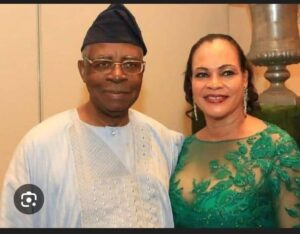
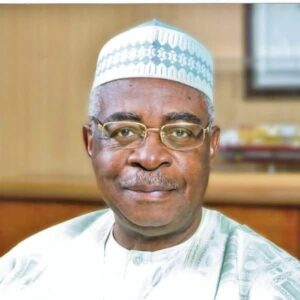
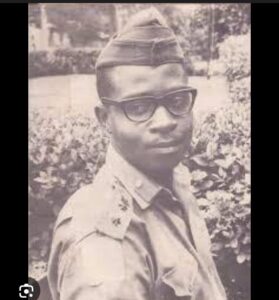
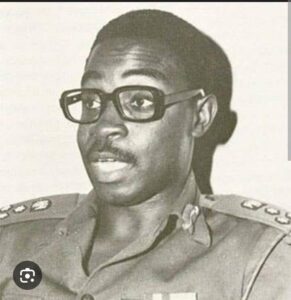
-
Business1 year ago
US court acquits Air Peace boss, slams Mayfield $4000 fine
-

 Trending1 year ago
Trending1 year agoNYA demands release of ‘abducted’ Imo chairman, preaches good governance
-

 Politics1 year ago
Politics1 year agoMexico’s new president causes concern just weeks before the US elections
-

 Politics1 year ago
Politics1 year agoPutin invites 20 world leaders
-

 Politics1 year ago
Politics1 year agoRussia bans imports of agro-products from Kazakhstan after refusal to join BRICS
-
Entertainment1 year ago
Bobrisky falls ill in police custody, rushed to hospital
-
Entertainment1 year ago
Bobrisky transferred from Immigration to FCID, spends night behind bars
-
Education1 year ago
GOVERNOR FUBARA APPOINTS COUNCIL MEMBERS FOR KEN SARO-WIWA POLYTECHNIC BORI




